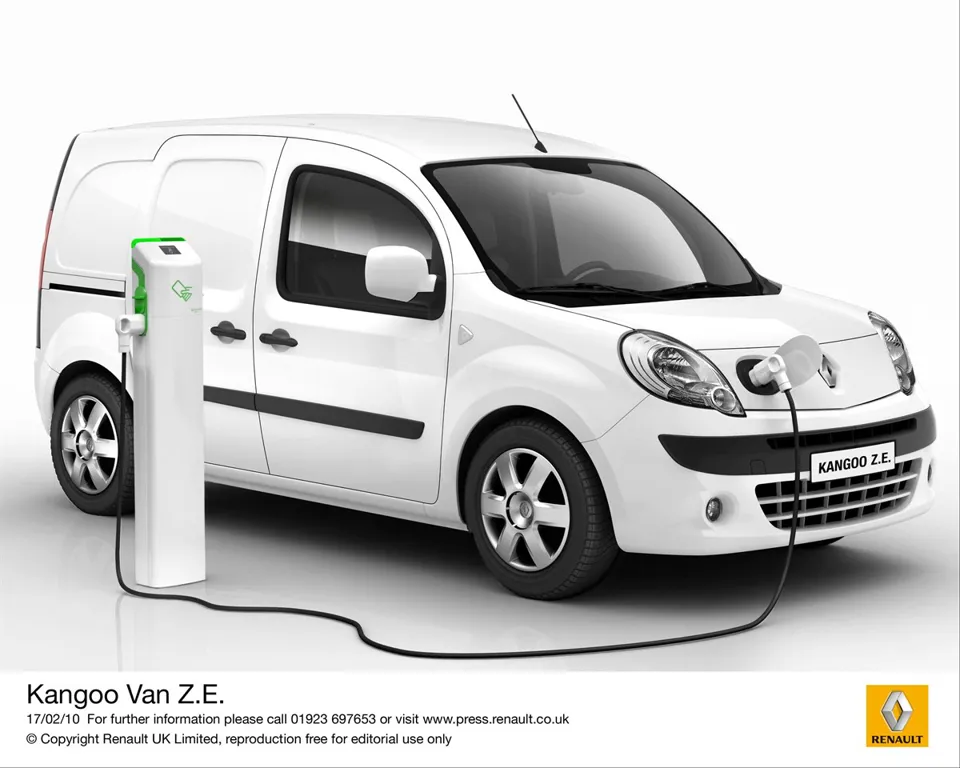It has so far been difficult to justify the use of electric light commercial vehicles in financial terms, thanks to a combination of high front-end prices, short range and a dearth of information about predicted residual values.
But the economic pendulum could be about to swing in favour of ‘zero emission’ vans with the launch of the Renault Kangoo ZE this month. Not only has Renault priced the van at well under half the cost of its nearest rivals, but the firm has launched a new business strategy which, it believes, cannot fail to persuade the UK’s van fleet operators that electric vehicles are at least worth trying.
With ‘fuel’ costing two to three pence per mile, lower maintenance charges, zero VED taxation and an exemption from the London congestion charge, Renault reckons that after 9,000 miles per year this van will be cheaper to run than a diesel equivalent.
Renault decided in 2009 that it wanted to be the world leader in electric vehicles and launched a strategy aiming to make it the first choice for EVs in the same way that Toyota has done with hybrid technology through Prius.
At the forefront of this strategy is a unique pricing structure. Whereas most electric vans are sold outright and the new Mercedes-Benz Vito electric is for leasing only, Renault is selling the Kangoo ZE as an outright purchase but is renting the batteries – a move that cuts out any worries about their longevity and the cost of replacements.
The company reckons batteries will last about eight years before they need replacing but under its scheme they will be changed for free when they lose 25% of their efficiency.
Then there is the price, which is low compared to the opposition. Kangoo ZE ranges from £16,900 to £18,690 ex-VAT, plus around £85 per month for the batteries, depending on which mileage/time package is chosen. Rival electric vans of this size cost around £40,000.
There is further good news on the residual value front. Glass’s Guide gives Kangoo ZE a predicted residual value of 45.7% after three years/27,000 miles, compared to a CAP figure for the Transit Connect Electric of just 20% at three years/30,000 miles.
The rival van is sold complete with batteries and costs £39,995, so the huge RV variance reflects the difference that Renault’s battery leasing strategy has made.
Range is something Renault is powerless to affect at present. The Kangoo will, like its rivals, travel around 105 miles on a full charge. But Renault confidently predicts that this figure will double within five years as battery technology advances. And when it does, the new batteries will be designed to slot into older vans, avoiding the possibility that early models will become obsolete in a few years.
The lease package for the lithium ion batteries also includes a breakdown and recovery service so if a van runs out of power it will be towed to the nearest charging point free of charge.
And for fleets which occasionally need to travel more than 100 miles, Renault has included a special deal in which diesel vans can be rented at special rates from Avis and Europcar.
Renault is wary of predicting sales volumes as the market is a totally new one but Fabien Goulmy, Renault’s small LCV range director, predicts that within five years, 10% of cars and vans on UK roads will be electric.
He said: “We could produce 30,000 units in a year if necessary but at present we just don’t know how many we will sell.”
Practicality of a diesel Kangoo
Kangoo ZE will be offered in three formats – Kangoo, Kangoo Maxi and a Maxi five-seat window version.
On the outside there is little to tell the van from its diesel brothers, apart from a flap on the bonnet which hides the electric charging plug hole.
The electric motor produces the equivalent of 60bhp but, with torque of 167lb-ft, this van seems a lot more powerful than it really is.
The batteries are situated under the load floor, which means that cargo area isn’t affected, and payload is 650kg for both vehicles.

















Login to comment
Comments
No comments have been made yet.